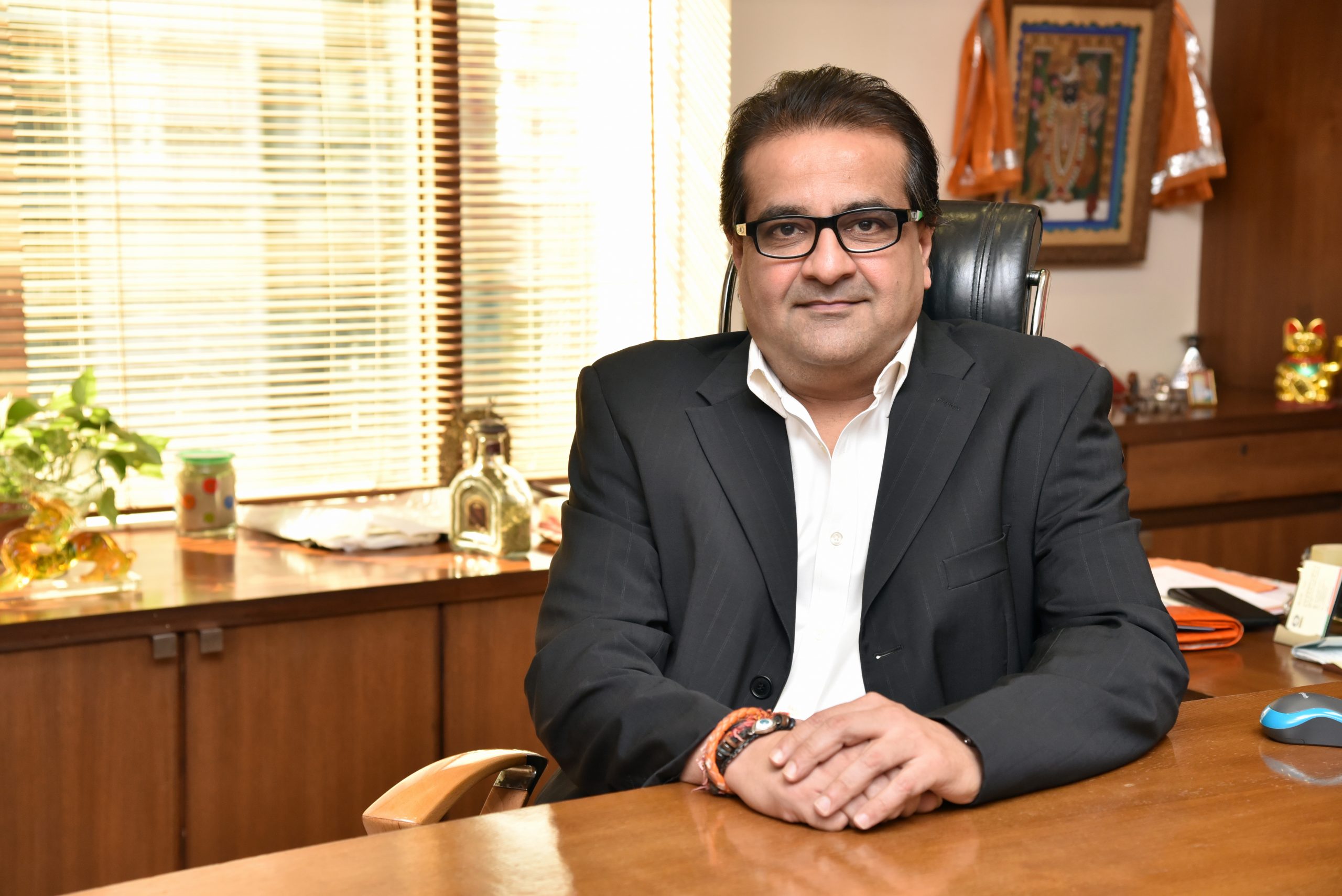From its origin in 1975 to its present incarnation as an international agribusiness and chemicals manufacturer, Punjab Chemicals and Crop Protection Ltd. has grown impressively. We spoke to Managing Director Shalil Shashikumar Shroff about the processes required to take an Indian company onto the world stage.
When it was founded forty-seven years ago, Punjab United Pesticides and Chemicals Limited, as it was then known, was a small operation with just one manufacturing unit. Part of the Shroff family group of companies, it catered then only to the domestic market, making products like oxalic acid, which can be used as a bleaching agent in metal polish or stain removers. Since changing hands through the generations, the company has expanded its product range and scope dramatically. It now manufactures herbicides for multiple crops, pharmaceutical ingredients, and industrial chemicals, working out of several state-of-the-art sites in India and a European base in Belgium. As a result, Punjab Chemicals has established itself as a mid-sized operator with international reach.
Current Managing Director Shalil Shashikumar Shroff, the grandson of the company’s founder, joined the company in 1992 after receiving an MBA in the USA. He then took up the reins as managing director in 1998.
I was always interested in agriculture, and I felt I could do something different.
“I had been studying in the US and saw how agriculture was managed there. I had also trained in Australia and Latin America, so I brought those influences with me.”
The particularities of his home country were something that was also recognised by the young executive. When he returned to India following his studies, Shalil became even more acutely aware of the environmental, economic, and agricultural issues there. Although there were lessons that could be learned from the USA and around the world, they needed to be adapted to local circumstances.
“When I came back to India, I said to myself, ‘How can we educate the people?’ You know, we have a big population (1 bn), and poverty is a major problem, but I saw an opportunity in that. I felt it was a good time for me to drive the company, not only internationally, but to work very closely with Indian farmers and producers.”
As a starting point, Shalil worked on changing perceptions of India around the world. Neighbouring China was already seen as an important link in the supply chain of many different commercial sectors. Cheap labour and production costs had made Chinese entities attractive partners for companies worldwide. India would clearly be able to offer the same advantages, and Shalil immediately saw this potential.
“I always thought that India could be attractive to big companies like DuPont, Syngenta, or BSF likes. All those types of companies look at buying the raw material for them to formulate and distribute to farmers worldwide. There was clearly an opportunity for us to partner with companies like that.”
He also brought with him a clear focus on the importance of people and personal relationships.
I always wanted to make sure that we look after people very well.
“But it did not start with me. In India, my father was the first person to give a stock option to the workers. At Punjab Chemicals, we make sure people are valued and, in that way, we get the best out of them.”
There followed a twenty-year process of growth, based on Shalil’s vision. The partnerships forged with established global players such as those mentioned above enabled Punjab Chemicals to embark on a new era. They would grow alongside those who used them as suppliers. Over the years, other large entities joined the list, giants like Nippon Kayaku, Dow Agrosciences, Bayer Crop Sciences, and many more.
As might be expected, the advent of the coronavirus pandemic slowed the company’s growth. Short-term expansion plans had to be set aside in favour of a more cautious, stabilising approach. Mitigation was key, and the emphasis needed to be on ensuring that global supply chain interruptions and the economic slowdown didn’t damage company finances too much. However, with the company now established at an international level and the worst of the pandemic’s impacts hopefully left behind, thoughts can now turn to the future. Shalil is not content to rest on his laurels. Plans for Punjab Chemicals’ next three-to-five-year period suggest an exciting journey ahead.
“Until the pandemic, everything was going so well,” Shalil explains. “Obviously COVID slowed us down. But I was very pleased with how well my team worked within the new restrictions. Moving forward, we already have new contracts and business opportunities in place. We are looking to double our revenue to around $220m over the next three years. We aim to be a strategic supply chain partner to all big multinationals and distributors around the world.”
Alongside the company’s commitment to growth comes a twinned commitment to sustainability. Awareness of environmental concerns is crucial in today’s marketplace. Yet this is more than a commercial imperative, as far as Shalil is concerned. Punjab Chemicals is not merely committed to carbon reduction and other green practices because they help sales; rather, it is something built into the company’s DNA, instilled even before Shalil took up his role.
“All of us have a commitment to this,” he says. “From my father to the guy who sweeps the canteen floor. It is not only me but everybody who is involved. It is an issue of global concern. We realise the ever-growing concern about environmental hazards, and we strive hard to maintain ecological and environmental balances.”
This commitment takes various forms across the company’s multiple sites but includes policies on cleaner and pollution-free work environments, waste management, and an emphasis on creating deeper awareness. Shalil, in tandem with his leadership team, has also established a special research and development unit tasked with creating and enabling the practices which make Punjab Chemicals a zero-pollution company. In addition, this team has been able to innovate methods for turning waste materials into by-products that enhance agricultural yield.
“The environment is something we treat with the utmost seriousness,” the managing director adds. “This is a key part of our corporate identity.”
All of this contributes to an image of a forward-thinking business very much on an upward trajectory. With sustainability, an ever more important issue, especially in agribusiness, a sector increasingly under the microscope, Punjab Chemical’s record is a further incentive for potential clients to reach out to them.
“We will continue to work with our existing partners and find new ones while continuing to give quality products and timely delivery,” Shalil says proudly. “We do this while keeping open and clear communication at all times. This is our way of working, and people connect with it.”
Click here to read & download the full article.



















